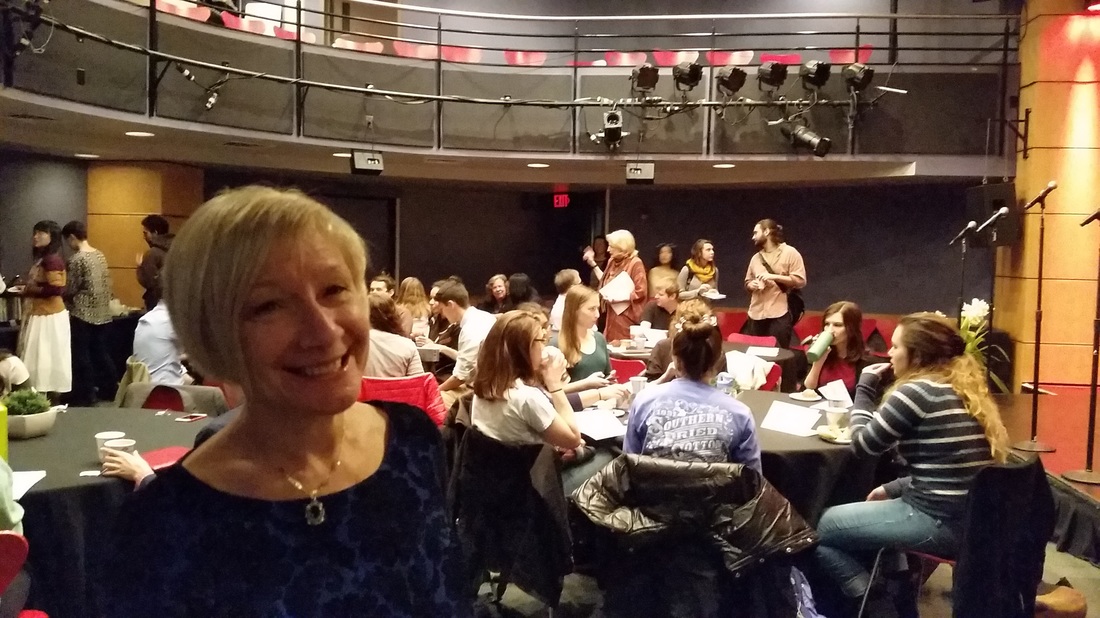 On Friday October 23, 2015, Berklee College of Music hosted a remarkable symposium that featured musical performances and discussion by faculty and music therapists about the use of music therapy and music education with the visually impaired student, as well as new technologies available to visually impaired musicians for composition and performance. The symposium was well attended, with over 100 people in attendance for all or part of the day. The inspiration for this symposium was the visit to Boston by pianist Nobuyuki Tsujii. Although blind from birth, he achieved what few sighted pianists have: at the age of 19, he won the 2009 Van Cliburn International Piano Competition. Now 26, he has a very busy and successful concert career around the world and in his home country of Japan. Longwood Symphony was fortunate to be able to host Nobu Tsujii between a West Coast and European tour. Rather than simply performing a concert with him, we designed a residency that demonstrated the balance that makes LSO unique, between music, healing and service, as well as education - including a conference, performance, and site visit to a school for children with autism. The Sound Vision symposium that started the weekend was a collaboration between Berklee College of Music and Longwood Symphony. Here a few insights, observations that I gleaned from the day: Music is connective tissue - Lisa Martino
Teaching All Learners - Panel discussion by faculty discussing education of the blind or visually impaired college student at Berklee, moderated by Anita Walker
Perhaps the day was best summarized by Barbara Lafitte a woodwind teacher at Berklee that in the end: "Passion overrides our hurdles." Here's the full program of the remarkable day, after welcomes by Darla Hanley, Dean Professional Education, Suzanne Hanser, Chair of Music Therapy, and me: Musical Performance: Perkins School Chamber Singers Music Therapy at Perkins School for the Blind Lisa Martino, MT-BC Panel Discussion: Teaching All Learners Moderated by Anita Walker, Executive Director, Massachusetts Cultural Council Berklee College of Music Faculty Speakers Peggy Codding, Music Therapy Arnold Friedman, Composition Rick Kress, Harmony Barbara Lafitte, Woodwind Musical Performance by Takeru Saito and Shun Kumagai, student musicians from Fukushima Musical Welcome back Suzanne Hanser Assistive Music Technology Chi Ki, Asst Prof. Music Therapy Musical Performance Wayne Pearcy and Rocco Fiorentino Film viewing: Excerpts from Touching the Sound: The Improbable Journey of Nobuyuki Tsujii Musical Performance Nobuyuki Tsujii
5 Comments
Today, MCC Executive Director Anita Walker, IHCD (Institute for Human-Centered Design) Executive Director Valerie Fletcher and Worcester Art Museum Executive Director Matthias Waschek presented at ABX 2013, Architectural Boston Expo to discuss MCC's exciting new direction for arts organizations in Massachusetts. They are developing guidelines for inclusive design in the cultural sector. 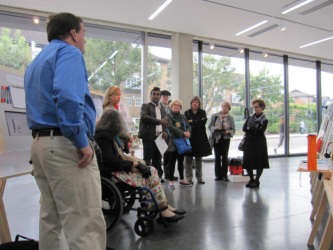 Our tour to London in September gave us the opportunity to observe London's team approach to accessibility and inclusive design, to start gathering ideas about what our program in Massachusetts might include. We began our tour at the London College of Design where we met Rama Gheerawo Deputy Director of the Helen Hamlyn Centre for Design, who gave us a wonderful perspective on inclusive planning teams--including designer, caregiver and user at the table from the start. His students created innovative designs for living, only after the designers met with people in the community to get a true perspective on their needs. 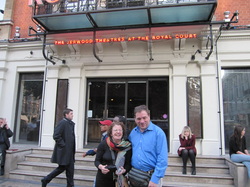 Later, we visited the Royal Court Theater where we learned of the extensive renovation that was done on this historic theater. Every floor is now fully accessible. The theater's backstage is also accessible to accommodate any actors and crew with disabilities. In addition, the Theater has developed a series of regularly scheduled Accessible Performances:
In Massachusetts, the American Repertory Theater has begun to implement similar programs, inspired by the work at the Royal Court Theater. Here is a link to their new programs Why London? When London won the summer Olympics and the Paralympics, they realized it was an opportunity and imperative to renovate and innovate their City. This has led to a flurry of creative design over the past 5-8 years. While there is always more to be done , especially in an old City like London, but we came away with a sense that what has really changed most is the heightened universal awareness of universal design and how it helps the entire community. 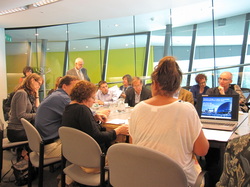 For example: Given the need for accessible sidewalks, the City Planners and designers worked together with wheelchair users in planning. The renovated sidewalk were smooth, but with patterns suggestive of the old London cobblestones. The new walks are wide enough to accommodate wheelchairs and strollers. The Royal Portrait Gallery raised its ceiling, brought in natural light and improved its audio guides so everyone could see and enjoy the art more clearly. The Natural History Museum engaged an artist who could create bronze tactile models of fossils so everyone could touch and feel the contours of the trilobite and Nautilus. We are blessed to be in such a rich and knowledgeable community here in Massachusetts. While there is still much to learn as we design an initiative that seeks ways to broaden the conversation about accessibility and universal design in our community – to make this a universal conversation--we have experts in Massachusetts in the worlds of design, education, health, culture and arts who can all come together to share knowledge. This isn’t just for the person you know who is a wheelchair user, the friend who is visually impaired, or the child who wears a cochlear implant for his congenital deafness. It’s for the mother with a baby on her back and a sleeping toddler in a stroller; it’s for the all-star athlete who is in a straight-legged brace for his torn ACL; and it’s for the father-in-law who can not hear in restaurants or navigate the halls in low lighting. Designs that make our Commonwealth and our cultural institutions more accessible to some will make them more accessible to ALL. At today's intense afternoon five-hour workshop, "Music Therapy for Survivors of War," learned about music therapy for US Wounded Warriors and music for healing in Uganda where thousands of child soldiers are trying to reintegrate into society. Music has helped.
It was an inspiration to meet Samite Mulondo today. He is a Ugandan musician living in Ithaca, NY, the founder of Musicians for World Harmony. Over the years, Samite has returned frequently to his native Uganda to work with the traumatized youth who were child soldiers in the Lord's Resistance Army. In 2007, Music Therapy Professor Karen Wacks from Berklee College of Music joined Samite on a trip to Uganda to work with the children. Professor Wacks has been able to continue a relationship between Berklee and the children in Uganda ever since, and returned to Uganda in February 2013. The question of "What happens when you leave?" The universal concern after international service trips is how to maintain continuity. In this case, thanks to new technology, a remarkable relationship was forged. The town of Lira and its residents are connected to the students at Berklee College through Google Hangout and meet weekly to continue sharing music and dance with each other! Later in the afternoon we discussed an interesting challenge, which I suspect will be the central discussion of the 2013 American Music Therapy Association conference: "Is there a bright line between music therapy, therapy as performance and healing music?" The second question I'd add is "Should there be?" Music therapists Karen Wacks and Rebecca Vaudreuil, paired with "Music Spiritualist" Samite Mulondo proposed that there is no bright line that sets Music Therapy apart, but a continuum. As a physician who spends a lot of time thinking about, playing and advocating for music as healing, who is not trained as a music therapist, I am very much in favor of this idea of a continuum that brings together the music therapist, the musician who performs in healing spaces and the medical professional who plays music. At the heart of it, we are all musicians interested in healing. We have all come to this work from different directions, but are united in our desire to decrease pain and to serve and comfort with music. We can and must learn from and support each other. 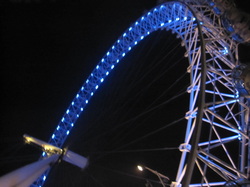 Imagining a world in which cultural facilities and institutions embrace inclusive design in their architecture, restoration, programming and education? Tantalizing! Inspiring! Difficult! But not...Impossible. Last week, 18 of us traveled to London to be enlightened and inspired. Each of us came with a different set of skills - knowledgable in arts advocacy, accessibility or architecture; research, resources or relevance. On a tour designed by Anita Walker of Massachusetts Cultural Council and Valerie Fletcher of the Institute for Human Centered Design, we traveled by bus to over 15 different museums, theaters and design schools and met with expert colleagues from London. In many ways, the trip and what is to follow reminds me of the iconic London Eye---there are many bright lights on the way, there are many stakeholders, and we may feel sometimes like we are going in circles - but we wlll aim high to get a new perspective. Over the next few days, i hope to express through words and pictures some of the experiences I had on the trip - the perspective of one who is new to the world of universal design but who has learned much in a week, and eager to learn more. A trip to Lambarene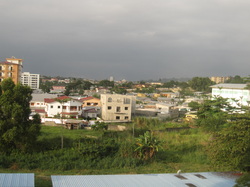 Two weeks ago (July 5-7), I was blessed to have been invited to join a group of amazing individuals who gathered in Libreville, Gabon to consider the legacy of Dr. Albert Schweitzer. Schweitzer arrived in Lambarene Gabon in 1913 and started his humanitarian work as a physician there. He returned to Europe from time to time but considered Lambarene and his hospital to be his home, and devoted his life to improving the health of the people there. 100 years later, a symposium was held to consider what health issues Schweitzer would be addressing if he were alive today. The symposium focused on the three major infectious diseases that constitute the public health crisis in Africa today - HIV/AIDS, Malaria and tuberculosis. Delegates from 22 countries gathered to meet, share knowledge, and consider mutual challenges. While it did not figure as largely on the formal agenda of the weekend, the subtext of the gathering was the underlying philosophy of Schweitzer's ethic of Reverence for Life and his humanistic approach to healthcare. Day 1, Saturday July 6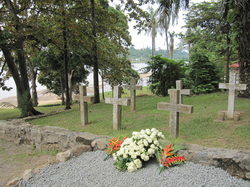 Early Saturday morning, my colleague Mark Churchill and I drove to Lambarene (3 hours from Libreville) on our own personal pilgrimage to see the Albert Schweitzer Hospital and pay our respects to the great man whose inspired vision has shaped our own life's work. This was an opportunity to reflect on Schweitzer's ethic of Reverence for Life, to gaze out at the Ogooue River that had inspired him, and re-dedicate ourselves to music, healing and service. Return to Libreville, evening at the Presidential Palace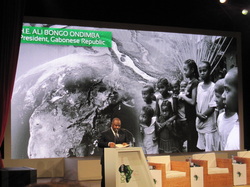 The weekend was sponsored by and hosted by the Gabonese government. H.E. President Ali Bongo Adimba greeted the guests on the first official event, an evening at the Presidential Palace. Talks included a panel of Nobel Laureates addressing Africa's major health Issues, and a brief overview of new modalities to fight the "Triple Epidemic: of HIV/AIDS, Malaria and tuberculosis. A dinner gala followed and the evening ended with a brief concert by the Royal Philharmonic Orchestra from London. Day 2 - Sunday July 7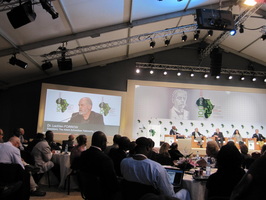 The second day was entitled "Applied Research Symposium on the Triple Epidemic: Providing Evidence Based and Practical Solutions," addressing such issues as epidemiology, prevention, screening and treatment. Some of the highlights were a discussion on coordinating care, both locally and internationally.and collaboration. The final panel, "Reimagining the governance model" featured Dr. Dr. Thomas Zeltner, Dr. Lachlan Forrow, Dr. Patrice Debre, and Ms. Trina Haque and was moderated by Declan Okpalaeke. They addressed the governance model of healthcare in Africa in the future, advocating improved resource allocation to achieve universal access to health. Here is a link to the panel discussion by these brilliant thought leaders. The Schweitzer familyAmong the many special aspects of the weekend was the participation of the surviving family members of Dr. Schweitzer's family. Like her grandfather, Dr. Christiane Engel is a physician and pianist, the daughter of the late Rhena Schweitzer Miller. Mr. Louis Schweitzer, is Albert Schweitzer's grand-nephew. Both spoke passionately about Dr. Albert Schweitzer's work and legacy and about their own determination to continue the family's legacy of healing and service. 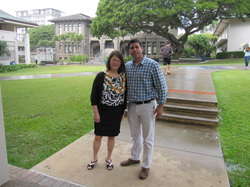 In early February, I returned home to Hawaii to visit my mother on the occasion of her 90th birthday. While there, I was invited to return to Punahou School to speak with the students about music and science. I spent a morning with the Jazz/Lit class taught by Mr. Pete Barazza (seen here) and the next day spoke at the Anatomy class of Ms. Darcy Iams. In both classes, I encouraged students to take risks and to always maintain their joy of curiosity. I tried to reassure them that they did not need to know their career paths by the time they graduated from high school - and that changing their minds in college was okay. In Ms. Iams' Anatomy class we touched on neuroscience, music and community. I asked the students to go around the room imagining themselves to be scientists and completing one of two sentences, "I wonder why..." or "I wonder if..." The questions they raised were astounding, from "I wonder why football players listen to music before football games and what is happening in their brains?" to "I wonder why elderly with dementia can remember music?" Finally, one young woman said "I wonder why they keep cutting the arts programs in schools when it is so good for our brains?" We all applauded! 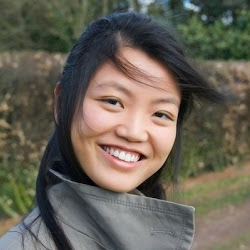 Last year, Dr.Psyche Loui, a neuroscientist/violinist with a particular interest in the impact of music and the brain, gave a terrific TEDx Cambridge talk touching on such fascinating topics as how the brain learns music, what parts of the brain are engaged, and how essential music is in our lives. It's worth exploring! here's the link: Psyche Loui TEDx
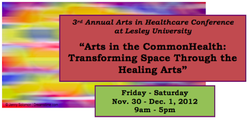 About four years ago, thought leaders in arts and healthcare from Boston came together to think about arts and healing from different perspectives. The group named itself BACH, Boston Arts Consortium for Health, www.bachboston.org. The members are leaders in the fields of music, neuroscience, medicine, music therapy, expressive therapy, and nursing, from Berklee College of Music, Harvard Medical School, Lesley University, Mt. Ida College, New England Conservatory of Music, and several other institutions and nonprofits. They meet every other month on a regular basis to share knowledge and best practices from different disciplines. The result has been enriching for all fields and a broadening of understanding about the ways the arts can heal. On November 30 and December 1, BACH will present its 2nd Arts in Healthcare conference, which will be hosted by Lesley University, with several of its members presenting their work. The conference will focus on how space can be transformed through the arts to heal the community, the individual, and physical space. Topics will include:
For more information or to register for the conference visit http://www.lesley.edu/ce/ls/artsinhealthcare2012.html 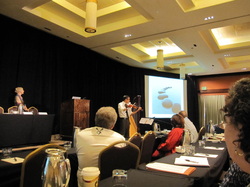 Continued ... Day 2 ended with a concert by the Santa Fe Chamber Musicians that included Schoenberg's Chamber Symphony, conducted by Alan Gilbert, and the Mendelssohn Octet, performed by 8 outstanding musicians including members of the former Guarneri String Quartet, Alan Gilbert and his sister Jennifer (I later overheard Gilbert saying, "remind me never to play the violin right after conducting - it uses such different muscles...my hands feel like marshmallows") Day 3 raised the question of how our new knowledge could be used to move the field forward and how to apply our work to the individual and the community. Berklee College Music Therapist Suzanne opened the day with music and demonstrated music's effect on reducing pain and stress and its ability to empower patients in hospital settings. She was followed by a presentation and performance by violinist/educator Adrian Anantawan who presented "Music Moving Forward: Adaptation and Evolution," He spoke of his own journey of becoming a violinist, his work as a disability advocate, and his interest in making music accessible to all. Anantawan described a recent chamber music performance that included a young former violinist who was quadriplegic, yet still able to participate musically with the help of new computer programs. Following his remarks, Adrian concluded with a performance of Elgar's "Salut d'Amour." 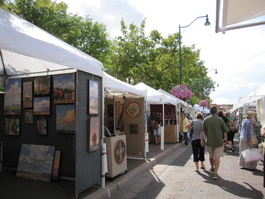 The conference concluded with my speaking about Longwood Symphony Orchestra. I pointed out that there are few lawyers' orchestras, and no Wall Street Orchestras, yet there are several orchestras of medical professionals like Longwood Symphony Orchestra around the world. These orchestras are tangible examples of the developmental impact early music training has on the young brain. At the end of the day, I stepped out of the Eldorado Hotel to explore Santa Fe. It is such a beautiful town filled with art galleries, public art, and music. It was also a craft fair weekend - the streets were blocked off to welcome the white tents of the many artists and artisans. I spent my last few hours in this magical town interviewing artists about their art and what inspired them. Bravo to the Santa Fe Chamber Music Festival and Conference co-Chairs who framed ... and achieved..these objectives: "The overall goal of the Symposium is to bring “world class” scientists, physicians, healthcare professionals, and therapists to Santa Fe to interface with “world class” musicians, and, to present cutting edge research and the state of the science in three areas of investigation: 1) how the development of the brain in early childhood and how cognitive development, language, emotion, and memory are influenced by various forms of music; 2) how music can be used to promote wellness and healing in patients with serious medical conditions including cancer, neurologic, developmental and cognitive disorders such as autism, and other chronic health conditions; and 3) how music promotes well-being in an individual and a community. |
Dr. Lisa M. Wong
I'm a musician and pediatrician, passionate about arts in education and about bringing the community together through music Archives
October 2015
Categories
All
|
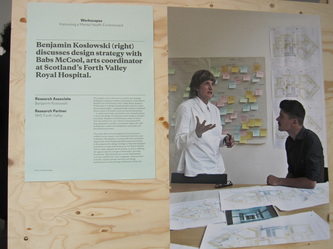
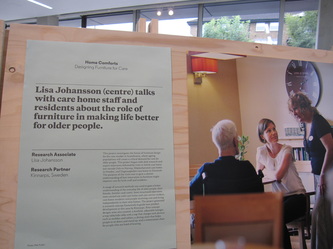
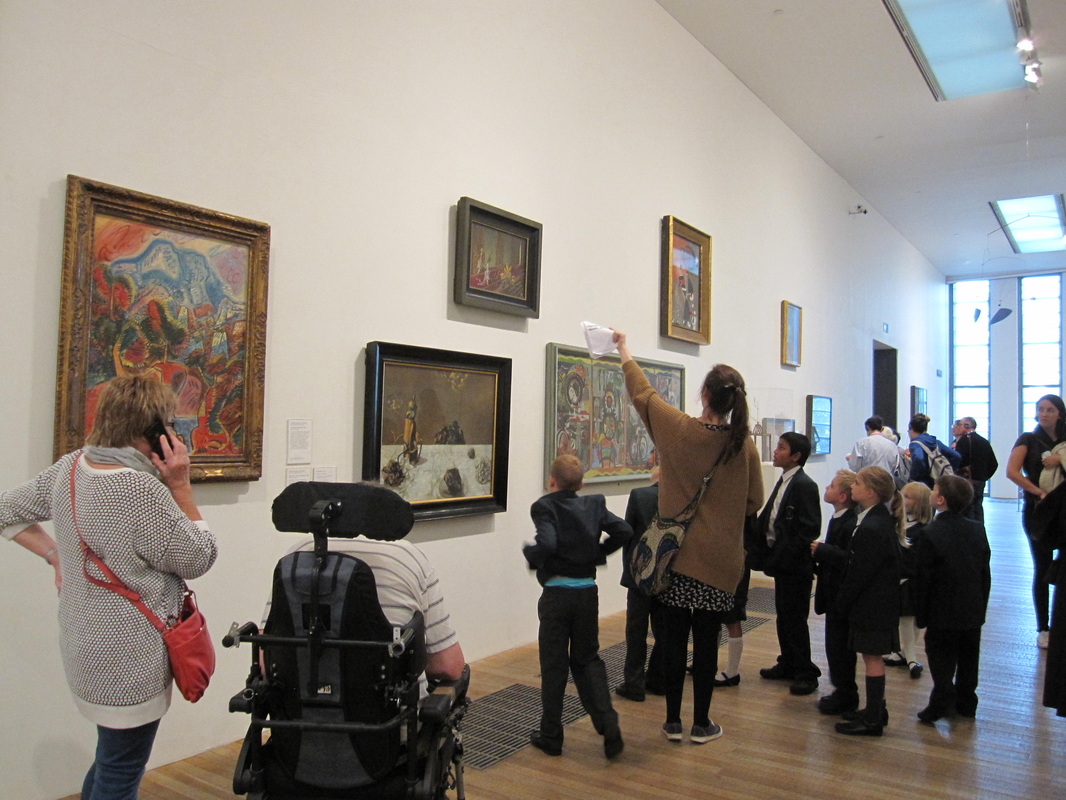

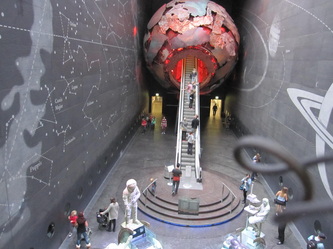
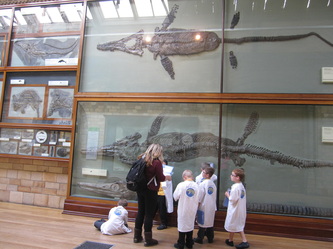
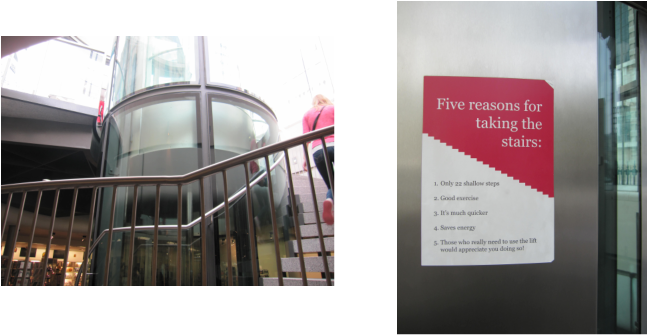
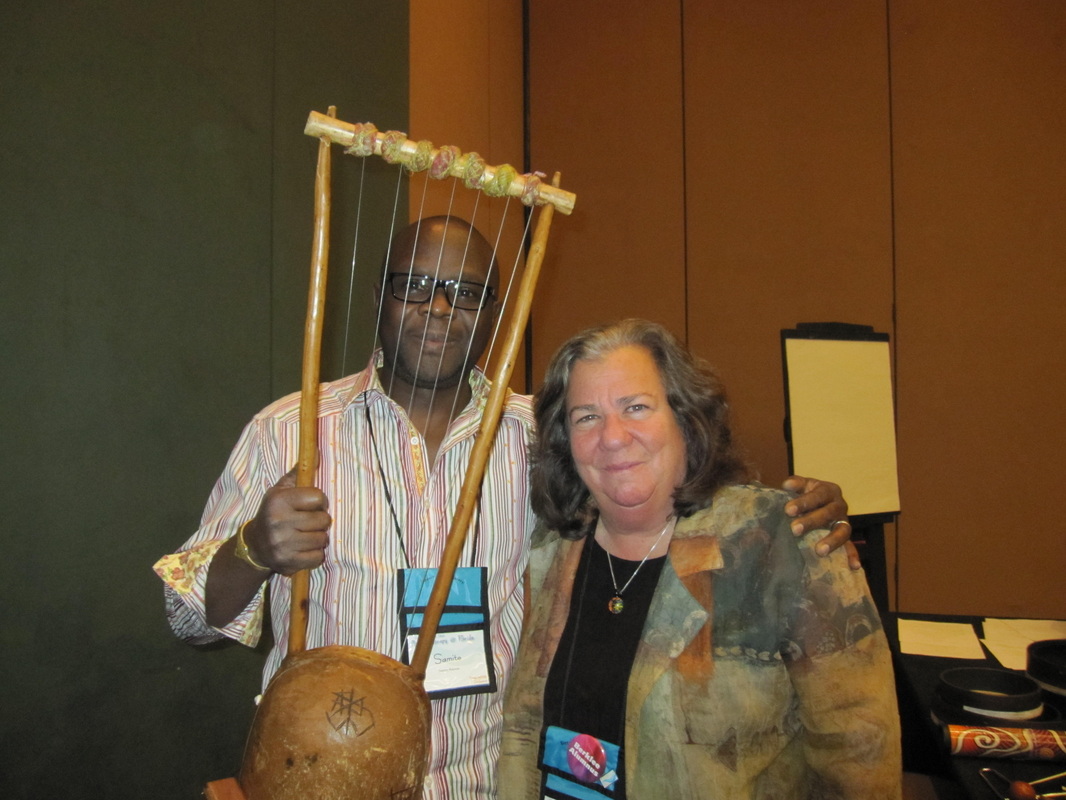
 RSS Feed
RSS Feed
